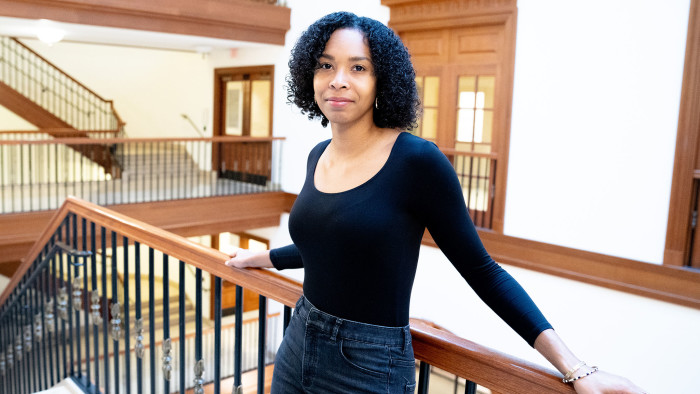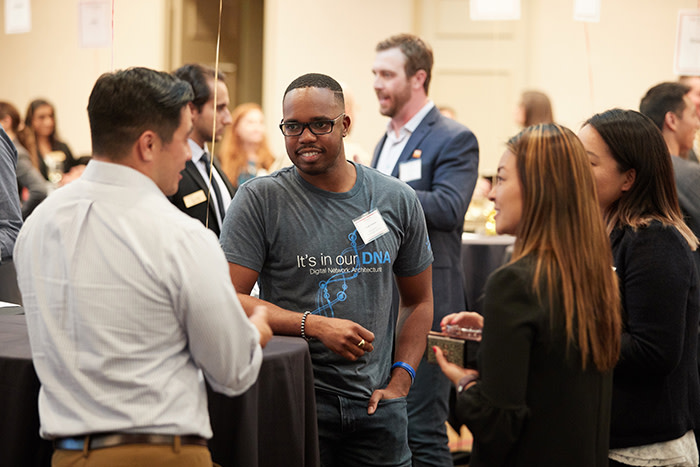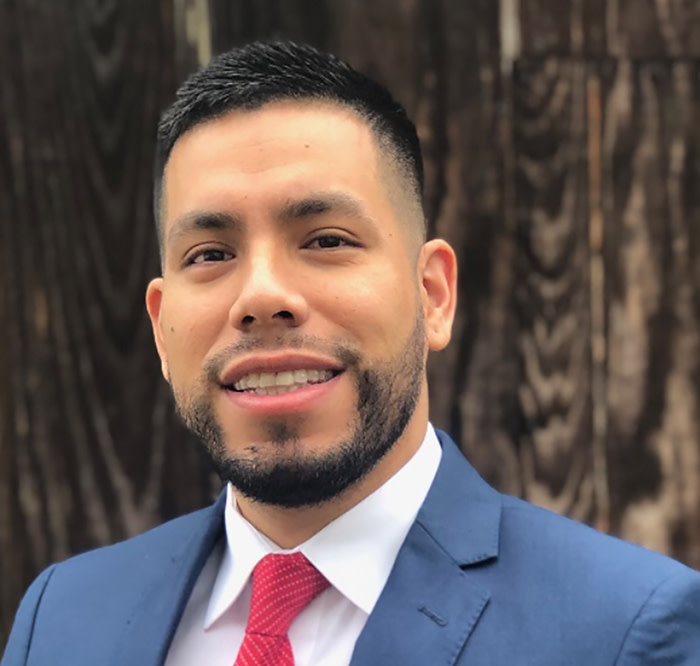Business schools target the talented but less wealthy

Roula Khalaf, Editor of the FT, selects her favourite stories in this weekly newsletter.
A social trip to Bogotá, Medellín and Cartagena in Colombia last year was an opportunity for Alexxis Isaac to build bonds and a network with her Harvard Business School classmates. “I wanted to fit in and enjoy the full MBA experience,” she says. While students can connect with peers on campus, she explains, “sometimes it feels like it’s essential to go on treks”.
The price of these frequent, student-led getaways — between $1,000 and $2,500 per trip — risks excluding people who cannot afford them, says Isaac. Like about half of her cohort, Isaac received a scholarship based on financial need. She would go on more trips if they were cheaper.
Isaac, an American who is black and Hispanic, says Harvard does not subsidise such trips, nor are they included in its calculations of the annual cost of attendance ($110,740 for a single person, covering tuition, accommodation and living costs). This is because the exact outlays are hard to estimate given the variety of locations and activities, such as cooking classes, hikes and travelling around. Isaac is collecting this data, with help from students and faculty, to determine the full cost of Harvard’s MBA experience, so students can budget accurately. She also wants more events to be held on campus.
Chad Losee, Harvard’s managing director of MBA admissions and financial aid, says students do not need to be part of the jet set to fully participate in an MBA. But he does want to enrol students from a wider range of socio-economic backgrounds and ensure they feel included. About 11 per cent of students in the most recent MBA class are the first in their family to go to university, for example — one indicator of being from a low-income background.
Business schools increasingly acknowledge that a wider range of perspectives enriches learning through group discussion, and helps prepare students to lead diverse teams. Corporate recruiters have also raised pressure on schools to enrol people from a broader array of socio-economic backgrounds, recognising the benefits of a diverse workforce.
Consequently, in 2017 Harvard doubled the size of its annual summer school, the Summer Venture in Management Program, to 180 undergraduates. Attendees are selected based on a variety of factors, including if they are from a group that is under-represented in business education, such as first-generation college students.
The SVMP aims to improve attendees’ access to graduate education: they spend a week on campus, taking MBA classes. “By the end, they have more confidence in themselves to apply for a place,” says Losee. About 1 per cent of the 900 students in the current MBA cohort attended the SVMP, but some enrol at other business schools or pursue different academic disciplines.
Many business schools are trying to diversify their student intakes. Columbia Business School in New York has increased the amount of financial aid awarded to MBA and executive MBA students by 388 per cent over the past decade. Students who demonstrate a financial need and go on to work in relatively lower-paying jobs, such as in the public sector, can also apply for up to $30,000 in educational loan assistance from Columbia.
Michael Robinson, a director in admissions, says Columbia also extended its MBA application fee waiver of $250 to prospective students living in Africa. “I’ve been in Nairobi [Kenya’s capital] talking to a prospective student making the equivalent of $1,000 a month,” he says.

The opportunity cost of not working is also a hurdle for students. This was part of the reason USC Marshall School of Business in Los Angeles launched an online MBA in 2015, says Sharoni Little, chief diversity, equity and inclusion officer. “Students study part-time so they do not have to give up their jobs to attend classes,” she says. “It has broadened the pool of applicants, including those who could not apply because of their economic circumstances.”
Thirty-eight per cent of online MBA students who enrolled in the 2019 calendar year are first-generation college students, compared with approximately 10 per cent of the full-time MBA class. They are less likely to have family members who work in professions such as banking or consulting, which recruit heavily from MBA intakes, says Prof Lei Lei, dean of Rutgers Business School. Family ties can help students land jobs, so in 2018 Rutgers launched a mentoring programme to replicate them. Executives help MBA students improve their confidence, résumés and interview skills.
“First-generation college students from relatively low-income backgrounds really need this kind of help. It makes a big difference,” says Prof Lei. For example, almost all the MBA students secure summer internships.

Rutgers student Juan Penafiel is attached to a mentor at US financial services company Prudential. The mentor is helping Penafiel map out a career path, possibly overseeing businesses managed by his family, whom he supports financially. Penafiel moved from Peru to the US when he was a child, and is the first in his family to go to university. The mentor, who is also from a low-income, migrant family, has helped inspire Penafiel to aim high.
But Martin Parker, a professor of organisational studies at the University of Bristol and author of Shut Down the Business School, is sceptical about the commitment of business schools to broadening socio-economic diversity among their student intakes.
He says schools remain focused largely on recruiting wealthy students who pay full fees, because business schools are required to make a financial surplus for their affiliated university. “They are cash cows.”
Catherine Cassell, dean of Birmingham Business School in the UK, says some schools prefer to recruit candidates with undergraduate degrees from prestigious, prohibitively expensive institutions, assuming this indicates quality. “We cannot discriminate against people based on their education,” Cassell says. She also argues for a holistic approach to admissions that looks at a range of factors including students’ leadership experience.

Alex Min, chief executive of admissions agency The MBA Exchange, says many would-be students fear that revealing financial hardship would discourage schools from admitting them.
“It is not inconceivable that a school may not offer admission to some applicants that are otherwise qualified because of the fiscal realities of needing a certain percentage of admitted students to pay full tuition.”
A potential solution is to assess candidates without knowledge of their finances. Min is optimistic that schools will improve the diversity of their intakes, given the recent global decline in MBA applications. “If this continues, business schools will have more reason to recruit a broader base of candidates.”
Comments